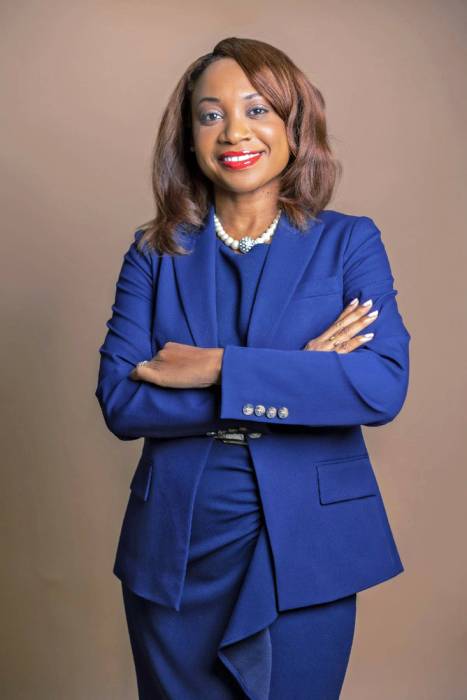 Dylan Marron is the voice of Carlon on “Welcome to Night Vale.”
Dylan Marron is the voice of Carlon on “Welcome to Night Vale.”
Credit: Ringa Sunn
Most people get defensive when asked about their fears and anxieties. They’re the most visible evidence of our darker side, possibly revealing truths about ourselves that we’re not ready to share, and often exploited as weaknesses by others.
But Dylan Marron is challenging audiences to not only confront their issues but to reclaim them with laughter.He’s even willing to go first.
You probably know Marron, 26, as the voice of Carlos in “Welcome to Night Vale,” the wildly popular — and just as eerie — sci-fi podcast about a desert community where monsters run for mayor, wheat products are a malevolent force of nature, and Valentine’s Day is a massacre. Sound just a little too possible? That’s the idea.
But this Sunday at Union Hall in Brooklyn, the focus shifts to him and his fellow performers in “What Are You Afraid Of?”
We caught up with Marron to talk about empowerment through comedy, the difficulties of childhood and finding the confidence to be himself.
How did you get involved with “What Are You Afraid Of?”
Mara Wilson, who hosts and runs that show, and I met through “Welcome to Night Vale” (she plays the Faceless Old Woman). And we’ve done enough live shows together to put in some nice quality time backstage, and we got to be friends.
This show deals with a really personal question.
I think professionally, we’re part of a group of people who mine their fears to propel themselves in their work. In terms of writers who write from a more honest place, I feel as though it’s a really personal question but at the same time it’s incredibly freeing, to have the opportunity to talk about your fears on a stage, because that’s the most potent way to reclaim them.
I kind of learned this in college – I was the kid who got made fun of during middle school and high school – and when I got to college and joined a sketch comedy group, I learned that when you name your fear first, or you name an impediment, you’re taking that ability away from other people. And I feel like being able to write about it, being able to talk about it, being able to share your stories of fear, doesn’t negate the fear, but by putting it out into the open it’s almost like actively combating it.
What will be your topic?
I have a lot to mine, a lot of material of what I’m afraid of. I’m a pretty anxious person – you name it, I am or once was afraid of it. I had so many body image issues growing up, and I think it’s going to focus probably on that.
How did those come about?
I was so sexually repressed when I was younger, I didn’t really explore that part of myself because I was afraid there was something wrong with my body, that there was something wrong with me. And I feel like that is this myth that a lot of kids buy into. I think this is because we put up images of the right male body is, what the right female body is, and if you don’t fit into those very specific boxes, that can be so dangerous. Because in middle school and high school, that’s not the time when it’s ever cool to be subversive or weird; you just dream of being normal and not standing out.
When I was a kid in middle school, boys would sort of lie to each other about what the average penis size was, they would quote these insane numbers. But I didn’t know that they were all lying, and nor did they of each other. It was this thing that nobody confirmed, but I was told if your penis wasn’t 10 inches, you are some sort of freak of nature. And I remember because I didn’t have a lot of male friends at the time, in fact any – I was exclusively friends with girls, as is true of a lot of gay guys growing up. I also never played sports, so there was never the locker room confirmation. I kind of sexually grew up in this little bubble where I had no idea what anything was like, I assumed that there was something wrong with me, something wrong with my body. And that led to so much shame about that stuff.
It’s pretty brave to get up onstage and talk about an issue like body image.
I think it does take a good amount of courage to talk about this stuff, but I also feel like it’s kind of one’s duty to do it if they want to speak to people who might be going through the things that they went through because I would just gravitate towards anyone who would share any story that was remotely similar to mine, about any subject matter. And I searched and searched, and of course the Internet was in some sort of beta form then, and you couldn’t search for every word that everyone has ever said on this planet. But I would search for articles about, like, “What is real penis size?” What is the actual average, not what your seventh-grade friends or the guys that bully you tell you it is. And I never found that.
What would you say to a young person who may be struggling with his or her own issues?
It’s OK, figure yourself out, and don’t let the normative structures of society dictate what is right and wrong with you, because there is nothing wrong with you. Wait till you figure out just how right you are. But in the meantime, you can know that there is a group of people who grew up just like this.
 Dylan Marron also co-stars in “Whatever this is.” a web drama about 20-something Brooklynites trying to break into the entertainment industry.
Dylan Marron also co-stars in “Whatever this is.” a web drama about 20-something Brooklynites trying to break into the entertainment industry.
Credit: Rascal Department
Being able to laugh about an issue implies you’ve conquered it.
I try and laugh about myself before I let anyone else laugh at me. Don’t get me wrong, it’s so thrilling when friends and significant others know you so well that they can make fun of you in this really loving way, from a place of love. But a lot of times, especially in my past, making fun was more bullying, and it was not like, “I know you so well and this is something about you that we can all laugh at, it’s a quirk.” It’s, “I know nothing about you, but I know you are different from me, and I will make you feel even more different for having that difference.” And that is such a dangerous culture.
Boys can be just as cruel as girls.
We talk so much about the “mean girl” culture that exists, the pervasive cattiness, the Queen Bees and Wannabes, and don’t get me wrong, there is a ton to talk about in the way young women treat each other in middle school and high school, but we ignore the fact that boys can be just as awful. We might not call it cattiness, but there is another kind of ostracism that happens among boys that is brutal. And what’s worse is that so many boys don’t feel that they have a voice to express that because it is unmanly to express when someone is making fun of you.
This may be a very unlikely person for me to be quoting in this interview, but in the final rap battle in “8 Mile,” Eminem decides to say everything that his opponent could say about him, and then his opponent has no material. Because he’s like, “Oh, I was just gonna come onstage to make fun of you, and I can’t do that anymore because you just did it, and now everyone is on your side because you called it out.” It’s this incredibly powerful ownership when you have the right to talk about your insecurities, and you have the right to talk about what it is about this world that gets you down, then it’s almost bulletproof glass that you’re building up around you.
But I don’t know if I love that metaphor, because humor and comedy can build up a wall, but I also think it can also provide really important access into someone, and it all depends on how you wield comedy. If you wield it as something that lets people in, and lets people see how human you are, then you’re not only protecting yourself, you’re protecting other people by empowering them to laugh at themselves before other people do.
“Welcome to Night Vale” is interesting, in that it feels like it could be the town next door, or on another planet. Do you think that makes it easier to talk about certain things?
What I see about “Welcome to Night Vale” and what has been pointed out, and especially why it resonates so much with a queer audience – although I have to say, I am astounded by how diverse this audience is in every sense of the word – is that, of all the crazy stuff that goes on in Night Vale, all the otherworldly things, what’s so amazing is that the love story and the center of it, between Cecil and Carlos, is just the most normal, mundane part of Night Vale. It’s two people falling into a relationship together.
The characters and storylines that Joseph [Fink] and Jeffrey [Cranor] create are incredible, and I find myself being just as much a fan of Night Vale. I catch myself backstage, listening to the live shows before I’m about to go on just giddy, because I love listening to it and then I forget, “Oh, wait, I’m in this.” You can get lost in the stories. And there are some times when you can see directly what they’re referring to – the storyline of StrexCorp is so interesting, because it’s about commercialism taking over small businesses, and media giants taking over smaller media companies. We have our own version of a five-headed dragon or a Faceless Old Woman, they’re just not literal.The whole story is directed at people, and embraced by people who also see the world as this kind of absurd place we all live, so let’s just make sense of it.
Yeah, and when a five-headed dragon is normal, it gives the show a chance to talk about something you should actually be afraid of.
What I personally appreciate so much about Night Vale is their intense awareness of race. I love Tamika Flynn – it is so incredible that there is a young woman of color who is leading an army of children and their main weapon is books. Backstage at the Town Hall show, I got chills when she would go out onstage and people would cheer for her. That’s a role model I would’ve loved to see as a kid. I would’ve plastered Tamika Flynn all over my room, that’s such a cool character.
In a small way, we had that with LeVar Burton and “Reading Rainbow,” if you want to consider literacy a battle. There’s a little bit of an allegory of the real world.
It’s just enough of the real world that you can see what they’re talking about, but enough not of the real world that you’re constantly surprised by it.
We obviously live in an image-conscious world, especially for actors. How do you deal with the expectations that places on you?
I feel like I went through so many drafts of myself when I was younger, there was no other option than to unapologetically be who I am – personally, psychologically and aesthetically. I went through so many versions of who I wanted to look like and what guy I needed to look like. One of the worst things is when you’re not a white, straight person, they always pitch you as a brown version of a type that they already know, like the brown Jake Gyllenhaal – and I’m never going to be a brown Jake Gyllenhaal. But we should also question it when we’re saying there has to be a brown version of Jake Gyllenhaal. If that’s the closest we can get to including people of all colors in the media, then we need to reconsider why we have so few people representing what it means to be a man or a woman or anything.
I think I so understood that I couldn’t get tied up in that, that I started presenting as exactly what I wanted to present as and not worry about who was going to be OK with that. I think I drowned myself in worrying about who was going to be OK with the way I represented myself when I was younger until a few years ago, that I just couldn’t anymore, in terms of surviving, I couldn’t survive that way.
‘What Are You Afraid Of?’
Sunday, 8 p.m.
Union Hall
702 Union St., Brooklyn
$7 advance, $10 door
Follow Eva Kis on Twitter @thisiskis or email eva.kis@metro.us












